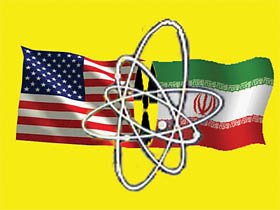
US Attack On Iran Would Bring Trans-Atlantic Rift
**************************************************************
Courtesy Of: DefenseNews.com
By Brooks Tigner, Brussels
Posted5/9/2006
Trans-Atlantic relations will fracture if the United States moves militarily against Iran, with no European ally taking its side, unlike during the Iraq War, one of France's leading political analysts projects.
"There's not going to be repetition of history this time," said Dominique Moisi, who teaches at the Institut d'Etudes Politiques de Paris, a think-tank that advises the French government on foreign policy issues.
"Washington knows war with Iran would be a catastrophe, but it considers a nuclear Iran to be the greater disaster. This view symbolizes the huge gap separating the United States from the rest of the international community--And certainly European nations, which rank those scenarios the other way around. The Europeans will not be divided in the opposition to the United States if it launches action against Iran."
The U.S. invasion of Iraq in 2003 bitterly split the 25 European Union nations into pro- and anti-invasion camps.
Addressing a roundtable of European officials and policy experts here May 9, Moisi said there are "Now no more diplomatic means" to prevent Iran acquiring a nuclear weapons capability since "The country is determined to attain this status, and Tehran has the firm support of Irans population to do so."
But it's a very dangerous situation because if it does this, then nuclear proliferation will spread across the Middle East. Saudi Arabia and other Arab countries will not stand and watch non-Arab Iran get the bomb.
But he also pointed to the European Union's foreign policy weakness and to the dim prospects for decisive action coming from the United Nations Security Council.
"The Iranians are very shrewd political animals," Moisi said. "They understand us, the Europeans, much better than we do them, and they know how weak we are due to our internal policy divisions. They also know how China and Russia think."
According to Moisi, a letter sent May 8, from Iranian President Mahmoud Ahmadinejad to U.S. President George W. Bush--The first open and official contact between the two countries since the fall of Iran's Shah in 1979--Was designed "To keep the international community off balance. And it's doing Just that."
The multipage letter offers historical, cultural and philosophical musings and does not refer to press reports.
U.S. officials have dismissed the letter for failing to address the nuclear issue.
Source:
http://defensenews.com/story.php?F=1762579&C=europe
This is the letter from President Mahmoud Ahmadinejad of Iran, to President George W. Bush:
Courtesy Of: Le Monde
http://www.lemonde.fr/web/article/0,1-0@2-727571-,36-769886,0.html




No comments:
Post a Comment